Episode 482: All about the 2020 Young Farmers & Cooks Conference and Stone Barns Center for Food & Agriculture
December 2nd, 2020
Podcast: Play in new window | Download
Subscribe: Apple Podcasts | Podcast Index | RSS | More
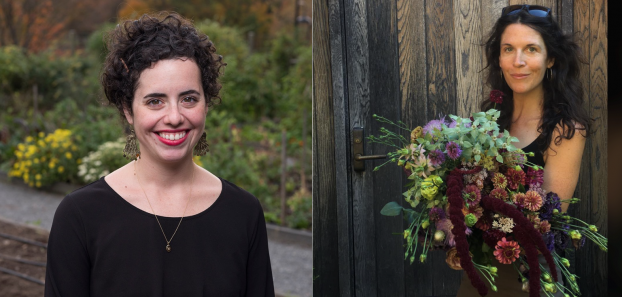
I’m really excited for this week’s episode – and happy to introduce you to my two guests, Shannon Algiere co-founder of the farm at Stone Barns Center for Food and Agriculture and currently the Farm Liaison manager, and Jessica Galen, Stone Barn’s Communications Manager.
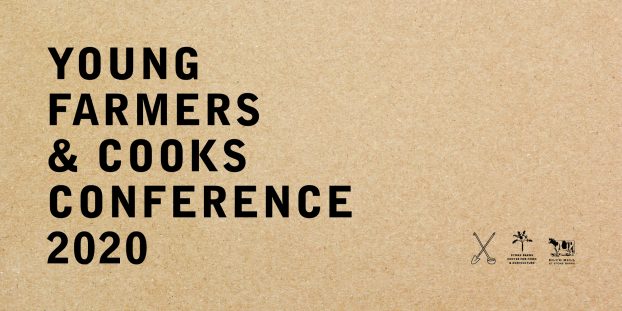
I’ve invited them to give us a snapshot of the history and work of Stone Barns Center and then we’ll preview the upcoming Young Farmers & Cooks Conference, a three-day, all-virtual event produced and hosted by Stone Barns Center for Food & Agriculture and Blue Hill at Stone Barns Restaurant on December 8-10. That’s coming right up next week and you’ll want to take advantage of the extremely affordable pricing to register.
This is an important conference about sustainable farming and food systems, and yes, the subject of Floral and Fiber Agriculture has a role.
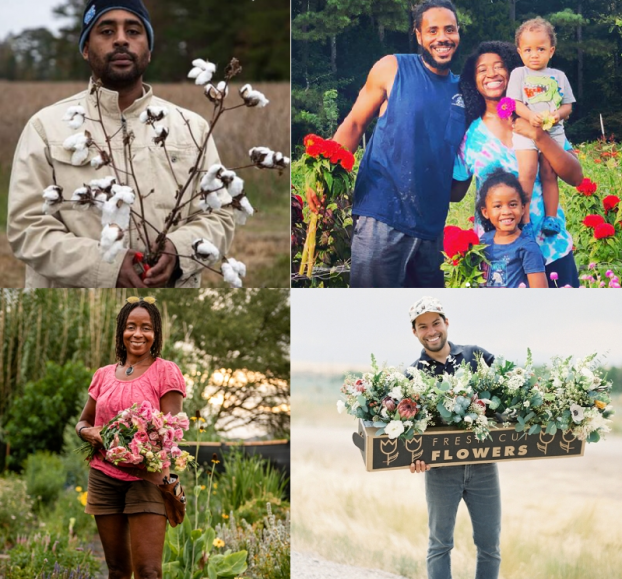
On Wednesday, December 9th (8:30 am Pacific/11:30 am Eastern), I’ll be moderating a panel called The Regional Flower Economy: Flower Farming as a Viable and Profitable Facet of Agriculture, featuring a fantastic lineup of Slow Flowers members. They include Aishah Lurry, Patagonia Flower Farm, Julio Freitas, The Flower Hat, Taij Cotton and VC (Victoria) Edwards-Cotten, Perry-winkle Farm, and Julius Tillery, Black Cotton U.S.
Whether you’re a farmer, cook, butcher, miller, preservationist, processor, or anyone else in the food (and floral) chain, this conference is for you.
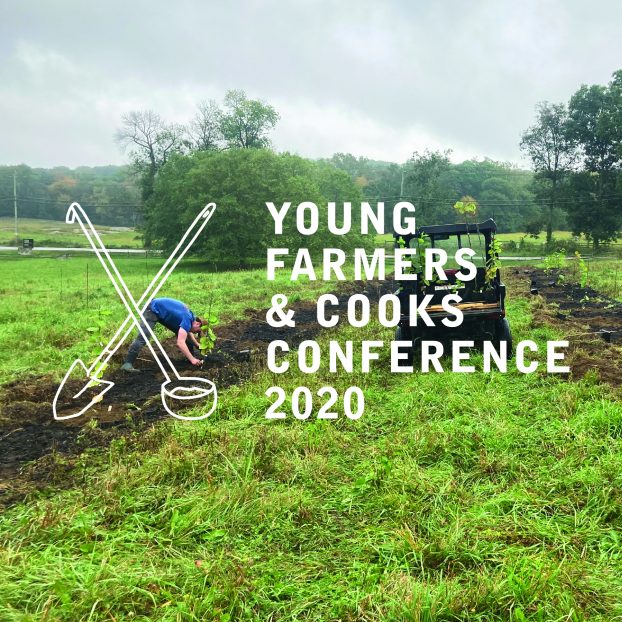
Here’s a bit more about Jessica and Shannon ~
Jessica Galen is the communications director at Stone Barns Center. In this role she manages relationships with the media and partner organizations, and provides editorial support for programming for young farmers and other key audiences.
She launched her career in branding and communications at a nonprofit consulting firm and an education reform organization. While in graduate school at NYU for a M.A. in Food Studies she worked in the cheese caves at Murray’s Cheese as well as for an organic produce farm and a raw farmstead cheesemaker. She served as the general manager at Lucy’s Whey, then the Upper East Side’s largest artisanal cheese shop, and as wholesale director at New York Shuk, a small-batch producer of Israeli and North African pantry items.
Jessica published an article in the Graduate Journal of Food Studies based on her Master’s thesis entitled “Cheesemongers Over Fearmongers: Toward Data-Driven Cheese Recommendations for Pregnant Women” and was a contributor to the James Beard Award-winning “Oxford Companion to Cheese.” She is on the Advisory Board of Equity Advocates, which provides policy education, advocacy training, and coalition building services to improve healthy food access in urban communities. In addition to her Master’s degree, she has a B.A. From Harvard University in Yiddish and Latin American Studies.
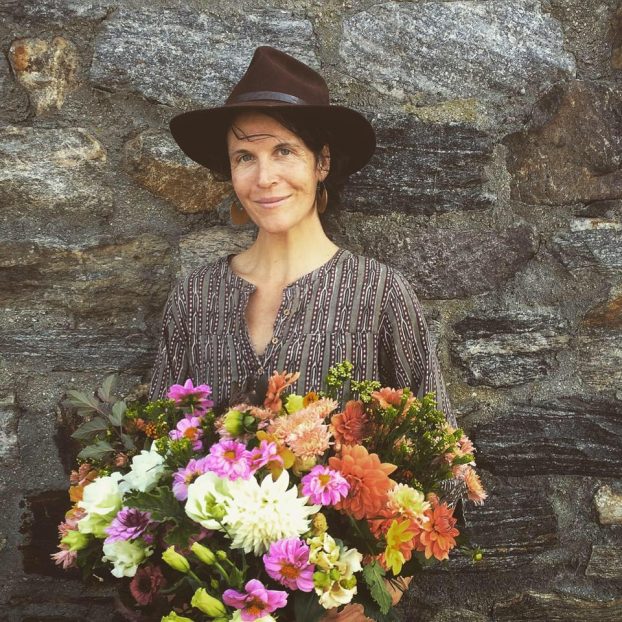
Shannon Algiere, a co-founder of the farm at Stone Barns Center for Food and Agriculture brings over 20 years of experience in holistic farm design, crops production, garden and greenhouse management and farm-based education. Alongside her husband Jack Algiere, Shannon has served many roles at Stone Barns Center in its development.
Most recently as Farm Liaison Manager, Shannon partnered with the center’s farm and programs staff to oversee farmer training, internships and volunteer programming.
She attended University of Rhode Island, was an outdoor educator at the Denison Pequotsepos Nature Center, Greenhouse Manager at Meadowbrook Biodynamic Herb Farm and White Gate Farm, and a volunteer for the Costa Rican National Park Service.
In 2017 Shannon started a floral design and horticultural services business, Potter & Prune, promoting sustainable models in the floral design industry by celebrating the elegance and ecology of connecting regional grower economies with event design. She has taught workshops on growing and marketing cut flowers at NOFA, SBC’s Young Farmer’s Conference, and Oregon State University Small Farms conference. She has also written articles and been interviewed for her work at the intersection of farming and health and wellness. Along with her husband Jack, Shannon is raising two boys and serves on the board of Hearthfire and Ayer’s Foundation.
Find and follow Shannon on Instagram here
Find and follow Stone Barns Center for Food & Agriculture on Instagram here
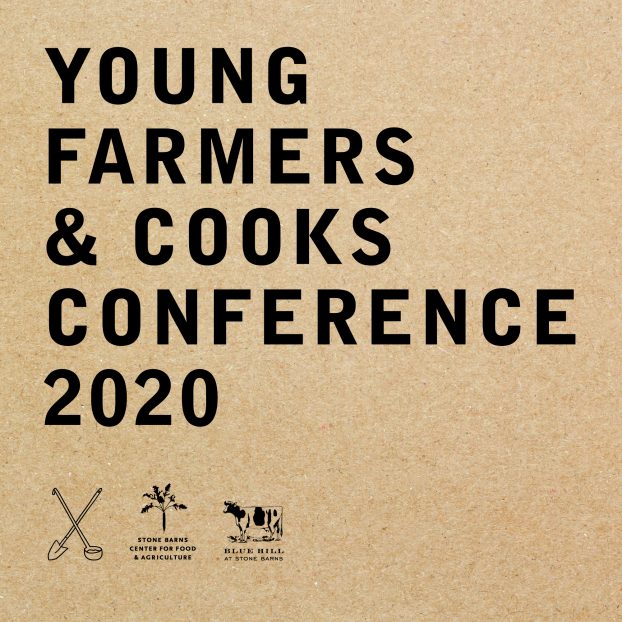
I hope you’re inspired to register and join the Young Farmers and Cooks Conference, taking place next week, December 8-10th. You can attend the conference for just $25 and you’ll be wowed by the program offerings and speakers.
UPDATE: We’ve just received a $10 off coupon code from Young Farmers and Cooks Conference! When you register, use: YFCCPROMO
You may have heard Jessica mention that the conference is being built around an anti-racist frame, and we fully support these values. When Shannon and her colleagues first approached me to curate a Slow Flowers panel, they explained that sessions are designed in a way that will honor the contributions of Black, Indigenous, and other communities of color throughout history who have shaped the agricultural and culinary topic the program addresses. Programs within the Young Farmers and Cooks Conference are designed to acknowledge the historical and cultural significance of topics; acknowledge and serve the diverse, international audience that will participate; and give space for voices and perspectives that have often been overlooked or underrepresented, especially in the realm of sustainable agriculture. Additionally, no panel will feature only white or male presenters.
And speaking of panels, in addition to our panel on the Regional Flower Economy, here are some of the other presentations I’m excited about:
Beauty in Food: Incorporating Edible Flowers in the Kitchen
Over time, the farm at Stone Barns Center has developed a robust flow of floral materials from greenhouse, fields, pastures and gardens into the creative hands of artisan chefs at the on-site Blue Hill Restaurant. This panel features demonstrations and encouragement on incorporating the beauty of flowers into dishes, beverages and cakes, presented by growers and artisan makers as they share tips, variety suggestions and artistic technique.
Bones, Pigments, Paper and Process
This panel introduces three artists applying ecological consciousness to their work and craft. They will take us through their process of land acknowledgement and working with land based materials as well as the steps that transform those materials into cultural objects.
Natural Dyes for Farmers and Cooks
How can natural dyes both connect us to our complicated histories and serve as a teaching tool? From the blemish of African enslavement to grow both cotton and indigo in the United States to modern textile practices that demand speed and slave wages, we have never gotten textiles right for people and planet. So what are we going to do about it and what are the most logical, equitable and environmental next steps? Join us for a discussion with four leading voices in the natural dye world.
Seed Companies, COVID-19, and Our Fragile Foodshed
Seeds are a critical first node in every food supply chain, so the people who run seed companies have a unique vantage point when major disruptions occur. The COVID-19 shutdowns led to the same sort of panic buying of seeds as happened in supermarkets with food. This huge increase in demand forced some seed companies to temporarily shut down or curtail operations as seed stocks diminished and experienced workers became harder to muster (with fears of the virus keeping many workers home). Now seed inventories are depleted, demand is higher than ever, and companies are struggling to maintain the diversity and quality of seed their customers expect. At the same time, most companies sold much more seed in 2020 than anticipated, leading to unexpected financial windfalls that allow for expansion, growth, and special projects. This panel features seed luminaries from a range of different companies, each offering their particular perspective and plans for moving forward into an uncertain future.
I hope you’re as inspired as I am. What a great opportunity to expand our understanding of sustainable agriculture at the intersection of art and design! Let’s all strive to be Food AND Flower System Changemakers!
Thank you to our sponsors


As our movement gains more supporters and more passionate participants who believe in the importance of the Slow Flowers Movement, the momentum is contagious. I know you feel it, too. I value your support and invite you to show your thanks and with a donation to support my ongoing advocacy, education and outreach activities. You can find the donate button in the column to the right.
This podcast is brought to you by Slowflowers.com, the free, nationwide online directory to florists, shops, and studios who design with local, seasonal and sustainable flowers and to the farms that grow those blooms. It’s the conscious choice for buying and sending flowers.
Seattle Wholesale Growers Market, a farmer-owned cooperative committed to providing the very best the Pacific Northwest has to offer in cut flowers, foliage and plants. The Growers Market’s mission is to foster a vibrant marketplace that sustains local flower farms and provides top-quality products and service to the local floral industry. Visit them at seattlewholesalegrowersmarket.com.
Longfield Gardens, which provides home gardeners with high quality flower bulbs and perennials. Their online store offers plants for every region and every season, from tulips and daffodils to dahlias, caladiums and amaryllis. Check out the full catalog at Longfield Gardens at longfield-gardens.com.
Rooted Farmers works exclusively with local growers to put the highest-quality specialty cut flowers in floral customers’ hands. When you partner with Rooted Farmers, you are investing in your community, and you can expect a commitment to excellence in return. Learn more at RootedFarmers.com.


The Slow Flowers Podcast has been downloaded more than 664,000 times by listeners like you. Thank you for listening, commenting and sharing – it means so much.
I’m Debra Prinzing, host and producer of the Slow Flowers Podcast. Next week, you’re invited to join me in putting more American grown flowers on the table, one vase at a time. And If you like what you hear, please consider logging onto iTunes and posting a listener review.
The content and opinions expressed here are either mine alone or those of my guests alone, independent of any podcast sponsor or other person, company or organization.
The Slow Flowers Podcast is engineered and edited by Andrew Brenlan. Learn more about his work at soundbodymovement.com.
Music Credits:
Glass Beads; Gaena
by Blue Dot Sessions
http://www.sessions.blue
Lovely by Tryad
http://tryad.bandcamp.com/album/instrumentals
http://creativecommons.org/licenses/by-sa/3.0/
In The Field
audionautix.com








